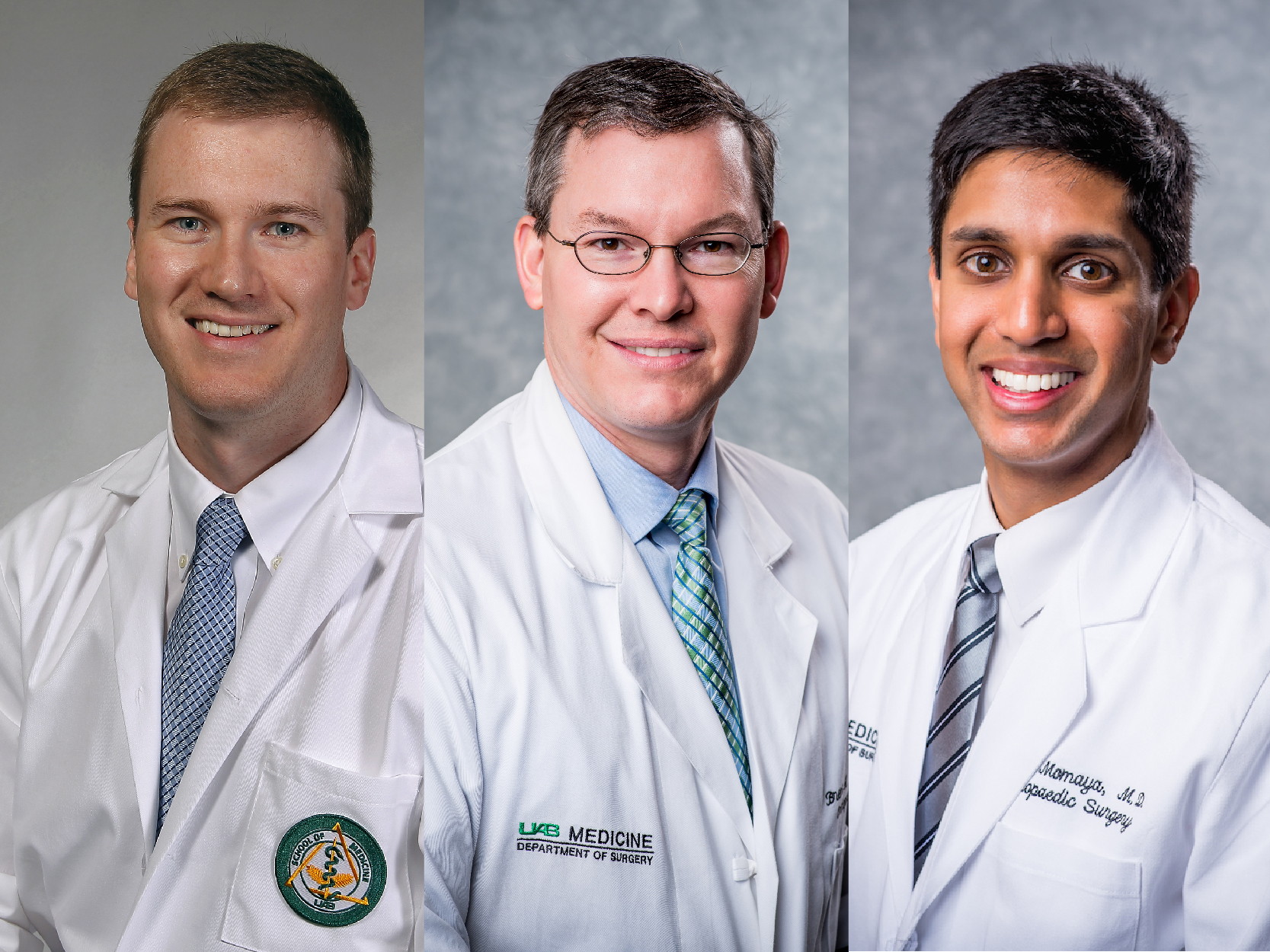 From left to right: Drs. Isbell, Ponce and MomayaUAB Medical Students Alex Dombrowsky and Graham Kirchner, alongside PGY5 Orthopaedic Surgery Resident Jonathan Isbell, M.D., and Department of Orthopaedic Surgery faculty Brent Ponce, M.D., and Amit Momaya, M.D. published their research, “Resilience correlates with patient reported outcomes after reverse total shoulder arthroplasty.”
From left to right: Drs. Isbell, Ponce and MomayaUAB Medical Students Alex Dombrowsky and Graham Kirchner, alongside PGY5 Orthopaedic Surgery Resident Jonathan Isbell, M.D., and Department of Orthopaedic Surgery faculty Brent Ponce, M.D., and Amit Momaya, M.D. published their research, “Resilience correlates with patient reported outcomes after reverse total shoulder arthroplasty.”
Their article was featured in the Orthopaedics & Traumatology: Surgery & Research (OTSR),
And the objective of the study was to determine if resilience, characterized by the ability to return to a healthy level of function after experiencing stress, correlates with patient reported outcome scores after reverse total shoulder arthroplasty (rTSA). An rTSA is a procedure where damaged portions of the shoulder are replaced with artificial parts, such as a plastic socket and/or a metal ball.
According to the article, there is little existing evidence about the role that resilience plays in patients undergoing orthopaedic surgery. This is the first study investigating how resilience affects outcomes after rTSA.
“This was a wonderful collaboration between faculty, trainees and medical school mentees,” said Isbell. “As providers, we can observe high-level resiliency and the positive impact it has on our patients, but it is powerful to have research that supports our observations and ultimately aides us in creating an environment for better patient experience and outcomes.”
Ultimately, the study concluded that patients classified as having low resilience are more likely to report worse outcomes than patients with higher resilience after rTSA. Further prospective work is required to understand the clinical utility of patient resilience and its relation to patient outcomes after shoulder surgery.